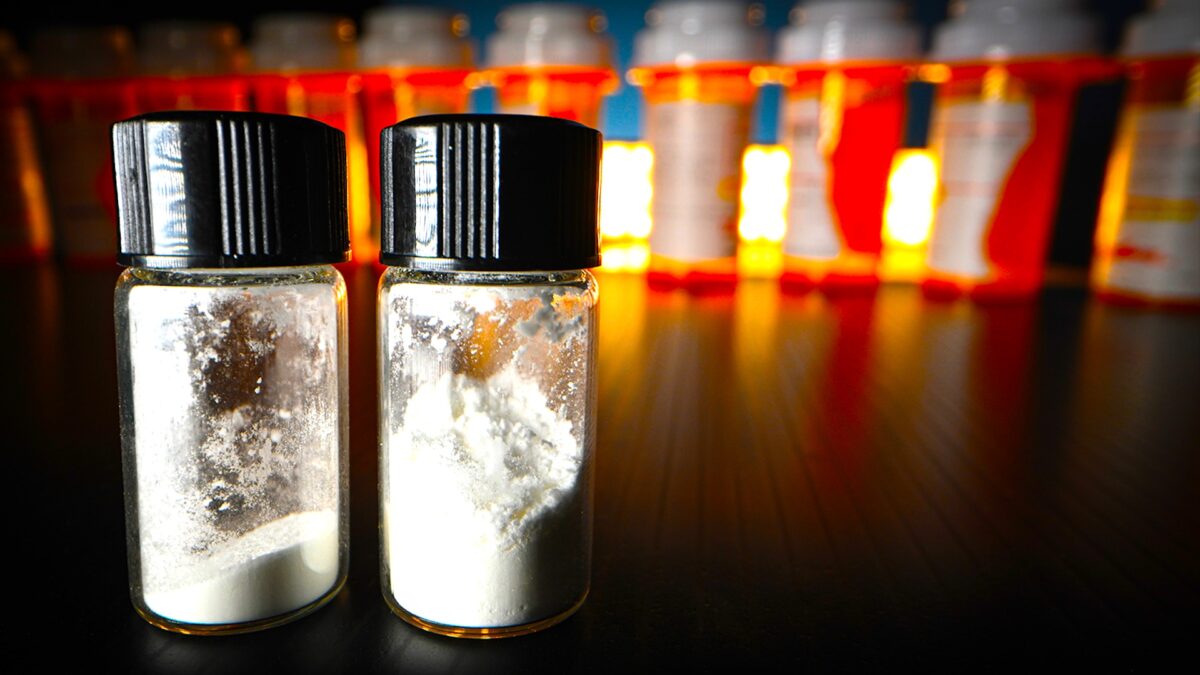Psychedelics could be the key to vanquishing Post-Traumatic Stress Disorder (PTSD), a debilitating condition that affects thousands worldwide. Traditional treatments have offered limited relief and a myriad of side effects. However, a new study has revealed a potential breakthrough in PTSD treatment using a new delivery system for the infamous drug ketamine…
We’ve been all over the psychedelics and mental health story from the very beginning, keeping you abreast of every twist and turn in the drugs’ journey from hippie hobby to healthcare revolutionary, questioning the real cost of psychedelic therapies, and even trying one or two ourselves… But now it seems that a lesser-known member of the psychedelics family, ketamine, could hold the key to defeating PTSD.
PTSD is characterised by the persistence of traumatic experiences in an individual’s memory which, unsurprisingly, can have a significant impacting their emotions and behaviours, causing flashbacks, nightmares, and severe anxiety amongst a whole host of symptoms. Commonly arising from psychologically distressing events — most famously soldiers who return from the horrors of war — as well as survivors of sexual assault, physical abuse, and other forms of trauma.
WATCH: Dr Robin Carharrt-Harris on how psychedelics could change the game for mental health.
While medications such as selective serotonin reuptake inhibitors (SSRIs) have historically been used to alleviate PTSD symptoms, no single effective treatment exists. Positive symptoms — given their name because they generate new behaviours, not because they are in any way ‘good’ — such as re-experiencing trauma and general hypervigilance tend to respond better to medication, whereas negative symptoms like avoidance and withdrawal are far less responsive. As such, research has continued, but with few signs of a breakthrough.
Ketamine — a dissociative and psychedelic drug originally developed as a general anaesthetic but has since become renowned as a widely available, sometimes dangerous recreational drug — has shown great promise in the treatment of pain and treatment-resistant depression. However, its use has been restricted due to the need for intravenous (IV) administration and a handful of associated side effects. Though ketamine infusion clinics have slowly begun to emerge, their high costs and the relative inconvenience of the procedure have hindered widespread adoption.
That could all be set to change, however, now that a patented delivery system called NeuroDirect has found a new approach to utilising ketamine for PTSD treatment. This technology involves applying a cream containing neuro-active compounds to the skin at the back of the neck, targeting the trigeminal and vagal nerves. This kind of application allows for direct connection to the central nervous system while reducing the risk of side effects associated with traditional methods.

Preliminary data suggests the strong potential efficacy of NeuroDirect’s ketamine cream in alleviating symptoms of depression and anxiety, as well as PTSD itself. Trials on one-hundred patients who had previously found multiple types of treatment to be ineffective reveal that topical application of the cream resulted in noticeable improvements within minutes of application. Patients reported relief from anxiety, depression, paranoia, focusing issues, cloudy thinking, and neuropathic pain, among other symptoms.
Over 80% of patients found the ketamine cream effective and requested continued use. Initial dosing ranged from 25 to 50mg, with ongoing therapy generally requiring another 25 to 50mg every 2-3 days. Some patients were even able to reduce or discontinue prior medications altogether. As well as being more cost-effective, convenient, and more effective than currently available treatments, the most convincing thing about this new treatment are the glowing testimonials from patients:
“It was like truth serum! I became aware of thoughts and emotions I had suppressed which needed to come out. I found myself crying uncontrollably as I released them. It allowed me to move forward as I had been stuck in a rut. I began to feel so much better…”
Anonymous PTSD Patient
While further research and a great deal of safety testing will be required before a nationwide rollout, the prospect of not only an effective treatment of PTSD but an application of ketamine that could redefine it in the eyes of the public — who have long-maligned it as a good-for-nothing party drug — is something to be excited about. As a wider psychedelic revolution looms in Australian healthcare, it seems ketamine could be another string to clinicians’ increasingly kaleidoscopic bow.
